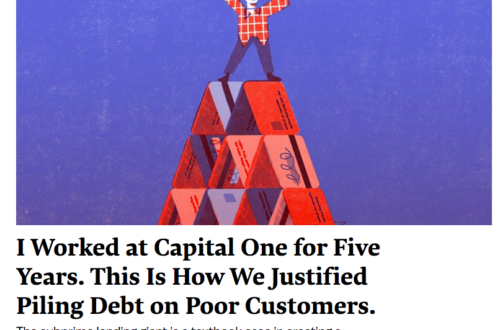Since 1882, the United States has denied immigration visas to those who were deemed “unable to take care of himself or herself without becoming a public charge.” This principle has applied also to the renewal of visas of those already legally living and working in the United States, and in some cases, resulting in the deportation of people whose visas were otherwise still valid.
For the past twenty years, while nearly all undocumented immigrants and many legally-documented immigrants have been ineligible for a range of public benefits, the only people labeled as “public charges” were those who got more than half of their income from cash-based public benefits.
Trump’s Department of Homeland Security wants to redefine who counts as a “public charge:” substantially lowering the threshold for how much assistance is considered unreasonable, beginning to include a much wider range of programs like food stamps and tax credits in the calculation. They also want to start factoring in a bunch of personal data like your family size and credit score to “guess” who might become a public charge in the future. In their Notice of Proposed Rulemaking, DHS recommends that U.S. Citizenship and Immigration Services “consider an alien’s liabilities and information of such liabilities in a U.S. credit report and score as part of the financial status factor,” claiming that “a lower credit score or negative credit history in the United States may indicate that a person’s financial status is weak and that he or she may not be self-sufficient.”
There have been a number of illuminating articles on what the change in the public charge definition would mean for families who are forced to trade off between making sure their family has food and medicine against the risk of deportation for having sought government assistance. Of course, these changes are in the broader context of the obvious moral problems with “kicking out” families who are doing the best they can. There’s also the practical consideration that a short-term reliance on a de minimis amount on public benefits doesn’t mean a person won’t over the long-term contribute positively to the federal budget.
Beyond all these problems, there’s also some more specific problems with using somebody’s credit score to determine whether to renew their visa, and those problems haven’t gotten a lot of attention.
Relying on proprietary, third-party algorithms
You’ve probably heard of “FICO,” the most popular credit score. FICO uses the information found on the credit reports maintained by the private credit bureaus Equifax, Experian, and Transunion to calculate a score intended to predict your likelihood of repaying debts. While a credit report is a list of (not always accurate) pieces of information about you, like your amount of outstanding debt and your payment history on your loans, credit scores are substantially less transparent. While anyone living in the United States has a right to check their credit report once per year for free from each of the three major credit reporting agencies — Equifax, Experian and Transunion — along with the many additional smaller credit reporting agencies, there is no corresponding right to see your credit scores.
Not only that, the formula used to calculate your FICO and other credit scores are secret — when lenders, landlords, employers, or the credit bureaus Equifax, Experian or Transunion want to see or use your FICO credit score, they have to pay the FICO Corporation.
While lenders rely on credit scores like FICO because they are correlated with a borrower’s likelihood of repaying debts, the statistical relationships aren’t causal: having a higher or lower credit score doesn’t mean that a person has been more or less financially responsible. A person with more unused credit available to them will receive a higher score than a person with less unused credit available to them, even if the two people have made identical payments on an identical amount of debt. Similarly, a person with 10 years of credit history will receive a higher score than a person with 2 years of credit history, even if both people have always paid all their bills on time.
When we make decisions that are so massively consequential to families’ lives based on algorithms that are kept secret from the public, it raises a number of risks. To start, it raises the fairness issues when there are variables being used in the algorithm that are either irrelevant to the decision at hand, or worse, variables that are discriminatory or biased. Importantly, a piece of information that is fair to use in one decision may be unfair to consider in an unrelated decision — for example, most people would consider it appropriate to use someone’s SAT score to decide who gets a college scholarship, but not in deciding someone’s criminal sentence. The variables that are legitimate to include in credit scoring models aren’t necessarily the same variables that are legitimate in making immigration decisions — and when the models aren’t open to the public, nobody is able to protest or raise issues when that occurs.
The lack of transparency around credit scores makes the situation ripe for scams from those who falsely claim they have the hidden keys to the ‘secret kingdom.’ Immigrants and non-immigrants alike are already targeted by ‘credit repair companies’ that make fraudulent claims about their ability to raise a consumer’s credit score.
Ripple effects of deporting the highly indebted
Failing to renew an immigrant’s visa based on their credit score would be a massive hardship for her and her family, but it would have broader consequences for the economy as well.
Having a high amount of debt can result in a low credit score, even if all debt payments are being made on time — meaning that relying on credit scores in making immigration decisions could result in deportation of those carrying high amounts of debt, even if the person is a model community member in every way.
And who carries significant debt? For starters, entrepreneurs. 71% of small businesses carry debt, and 3 out of 4 times, that debt is $25,000 or more. Larger businesses may qualify for loans that are entirely based on the firm’s credit-worthiness rather than the owner’s, but loans to brand-new companies will typically require a personal guarantee from the owner, and be reported to the owner’s personal credit report. Contrary to the rhetoric around immigrants as ‘job takers,’ they are especially likely to be job-makers, starting new businesses at a higher rate than their U.S. born peers. Small businesses built by immigrants employ 14% of all private-sector workers in the United States.

Suddenly, we’re not just considering the impacts of using the credit score on the immigrant and her family — now it touches her employees and customers. There’s another stakeholder who has a huge vested interest as well: the lender.
Whether the immigrant borrowed money for a business, for education, a car repair or a medical emergency, the lender will want to see the debt repaid — and the odds of that happening drop considerably if the the borrower gets deported. An immigrant forced to leave the United States is likely to see a big drop in her earnings, and hence, her capacity to repay debts. And even if she still has the money to repay the debt, will she have an incentive to? It’s much easier to walk away from a loan if you’re outside the jurisdiction of the U.S. court system, and if you don’t have a reason to try to keep your U.S. credit scores high. This is obviously disadvantageous to the lender, and would have the strongest impact for credit unions and local banks that focus on serving immigrant communities. Fair lending laws prohibit banks from discriminating based on national origin, but that doesn’t mean that credit access for immigrants wouldn’t start to dry up if lenders realize that the very act of extending an immigrant credit could get that immigrant kicked out of the United States down the road.
What comes next
The broader set of changes around the ‘public charge’ determination will be more consequential than the specific language around using credit scores to determine visa renewal. Given President Trump’s disturbing and inaccurate rhetoric about immigrants, a policy that is punitive towards immigrant families may be exactly his intent, even if such a change causes harm to U.S. citizens as well.
That having been said, complex legislation and rule-making often comes with “typos” — ambiguities or inaccuracies that didn’t match the intent of the framers.
A simple modification of the proposed rule to consider specifically “debts that are in a delinquent or defaulted status as reflected in an alien’s credit history” in lieu of “the alien’s credit history and credit score” wouldn’t impede the stated albeit already problematic goal of the rule change, “to ensure that those seeking to enter and remain in the United States either temporarily or permanently can support themselves financially and will not be reliant on public benefits,” but would be fairer, more transparent, and have fewer negative consequences for broader communities.






One Comment
Draper Kauffman
Excellent! This does a really good job of looking deeper and pointing out the dangerous side-effects of a policy proposal that would have a superficial appeal for many people.
I’m glad I stumbled on your blog, Elena.